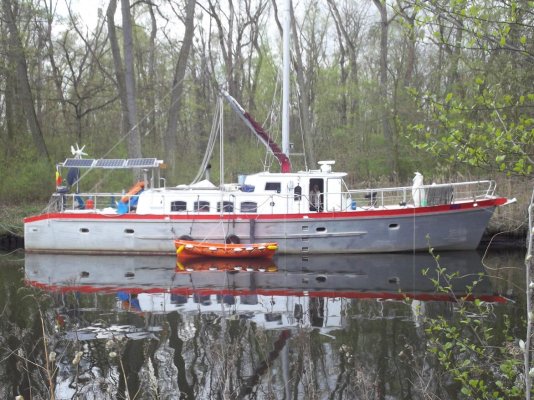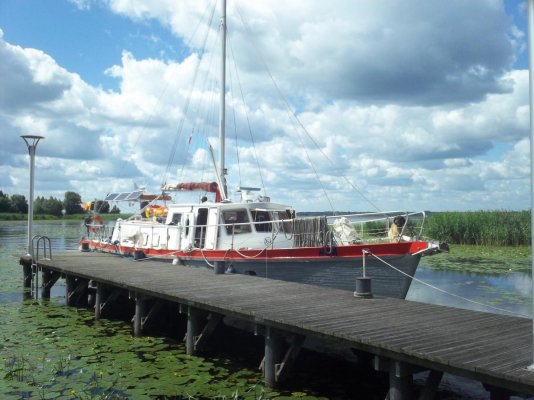Hardly typical of most boaters so pretty much irrelevant to the OP.
To the contrary, I did find that post more in line with our desires than out of line. We are looking to live/cruise full time with no houses, cars, or land-based financial obligations along for the ride. We would like to do what everyone else wants to do- winters in the Bahamas with summers in Maine or Georgian Bay up there in Canaderp. The only schedule we'd have would be dictated by hurricane season limitations set by the insurance company. Part of the allure of a boat is that we can truly get away from people, and stay away for an extended period of time. As such, we have no interest in coming anywhere close to a marina beyond the need to refuel and pump out. If we were looking to tie up to a dock every night, we might as well get an RV and live in KOA campgrounds.
We make a great team when turning wrenches and between the two of us, have every skillset needed to maintain a boat covered. Short of something requiring a haulout, very little, if any labor/yard fees will come up. But we do fully acknowledge that there are some things that are just better paying someone else to do (bottom paint) and some things we simply will not be able to do (straightening a prop or a shaft).
So there's the where and the who. Since it was brought up that specifics are in order to more accurately answer my original question, here's the what.
We're looking to do all this on a Hatteras, either a 43DC, 48YF, 53MY/ED/YF. So far, we've only looked at an ED and are not writing off the others, but damn, that was a REALLY nice boat.
I digress. As stated in the original post, I started to question the "bigger is more expensive" rule of thumb when I started to notice that these boats in particular are all very mechanically similar. Repowers excluded, 90% have Detroit 71 series, a few have 92 series and some of the 43 and 48's have VT903's. All have one, rarely two generators, a galley with mostly full size appliances, two or three heads, three or four AC units, ect. Basically, the biggest difference I've seen between those boats is the layout and size.
Hence, my question- taking out the expenses that vary depending on the size of the boat, is there really much of a difference in maintenance costs? I was guessing no because any given piece of equipment is going to require the same care regardless of what package it's in. But, I wanted to fact check my guess because it did go against conventional general wisdom. The gist I've picked up thus far is that my guess is more or less in line with reality... unless I completely misunderstood what all's been said here.



